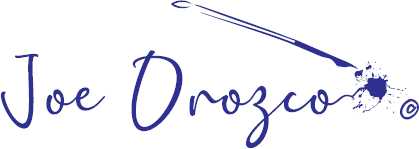No Braille? No Literacy!
If you are blind, cannot read print or Braille, you are not literate.
In honor of World Braille Day, I’m reviving a controversial post I previously published on the SeroTalk Blog. The post generated some, shall we say, backlash. I’m preserving the well-written comments I reply to in the post, because I think the comments can stand on their own without explanatory background. If you would like to see the links to the sources sited, please consider reading the original article.
The original post follows:
On SeroTalk 227 we featured an article contemplating whether or not Braille was headed for obsolescence. The idea is not a new one. Everyone can agree technology is reshaping the way a blind person consumes information, but the debate prompts a larger question about whether or not there is a link between Braille and literacy. This point has also made its way around the block but is still igniting heated responses.
The question could boil down to this: If you are a blind individual unable to read printed information, are you illiterate if you cannot read Braille?
In today’s politically correct and overly polite society it’s easy to express hesitant opinions that fear offending opposing viewpoints. These opinions are sadly watered down and do nothing to stretch our intelligence. I have no interest in offending anyone, but as someone who has a high regard for your intellect, and as someone who enjoys spirited debate, I trust you will take me to task, and back up your arguments, if you disagree with my opinion that you would indeed be illiterate.
We received the following responses shortly after the release of 227. Although these comments will be featured in their entirety as part of our regular Mailbag segment in 228, I offer the relevant statements here for the sake of a concentrated discussion of this touchy subject. The point here is not to pick on these individuals, or their comments, but rather to respond to thoughtful viewpoints likely shared by others in the community. I encourage you to listen to the episode in question to draw your own conclusions.
From Josh:
I also take some issue with Joe’s definition of literacy. As an avid reader of audio books, I believe that while reading is important, it doesn’t have to only mean recognition of how letters look. While I am not advocating for the use of audio books only, I don’t think the question should be either or, but both. I realized that reading textbooks in Braille was slo and absolutely inefficient for me in high-school. On the other hand, if I couldn’t read braille signage, I’d be in big trouble!
My response:
Perhaps your issue has more to do with my interpretation of literacy. I would not be so arrogant as to define what literacy means to the rest of the world, so for the sake of neutral reference points to frame the discussion, let’s consider a few independent sources.
First, the National Assessment of Adult Literacy provides this definition: “Literacy is the ability to use printed and written information to function in society, to achieve one’s goals, and to develop one’s knowledge and potential.”
Regardless of where you stand on the debate, I think we can agree Braille can substitute references to printed information moving forward, yes?
Second, because people argue the definition of literacy has evolved, here’s a definition offered by the Ohio Literacy Resource Center:
“Defining literacy in our changing world is not easy. Several years ago, being literate meant being able to read and write a little. Now, being literate means being able to read and write at a level to be successful in today’s world and also being proficient at math, knowing how to use technology, and knowing how to solve problems and make decisions.”
Now, Before you seize on that reference to technology as justification for why you’re right and I am wrong, I think we can agree “literacy” in the Center’s definition is being used as a link to competence in a given subject. For example, an engineer is most likely literate in mathematics.
Finally, just in case you were disappointed not to see a standard dictionary entry,
Oxford defines literacy simply as: “The ability to read and write.”
Okay, let’s drill down a little more, because that’s the second time we see a reference to “reading”, so what is reading?
A Houghton Mifflin Company site offers the following:
“Reading is the process of constructing meaning from written texts. It is a complex skill requiring the coordination of a number of interrelated sources of information (Anderson et al., 1985). …
“Even definitions of reading that emphasize meaning indicate that reading is activated by print. The reader must be able to translate the written words into meaningful language. Virtually all four- and five-year-old children can communicate with and learn from oral language, but very few can read, because they lack the ability to identify printed words. While simply being able to recognize or “say” the printed words of text without constructing the meaning of that text is not reading, constructing meaning from written text is impossible without being able to identify the words.”
Okay, so there you go, some unbiased definitions, none of them from blindness resources, that both frame the discussion and make my point. Are there texts out there that refute these terms? Perhaps. Feel free to make use of the comments to offer them.
Now, as to your point about Braille and inefficiency, I believe this is a lack of support by school districts that: 1) do not believe in Braille as a viable reading process; or 2) lack the resources to teach Braille. Neither of these is the affected student’s fault, but these factors should be all the more critically weighed to prevent more individuals from growing up illiterate.
From Gary:
I listened to your excellent Serotalk podcast this evening. During your discussion of Braille, my impression was that you were coming very close to equating Braille and literacy. There is little question that were one suddenly able to become a proficient Braille user, few would decline the opportunity, including me. Braille is a skill I would like to have developed when I was young. However, when I did try to teach myself as an adult, my success was minimal. Even so, the little I did learn was very useful. Having acknowledged the point that being able to use Braille efficiently would be a very good thing and further knowing that young blind children learning Braille would be a good thing as well, please do not suggest that learning Braille is the only path to literacy. The notion that not knowing how to read and write using Braille is somehow equated with not being able to become fully literate is silly and quite wrong. I also think that is a deep rabbit hole you head down when you suggest that using readers or text to speech or other electronic methods is not reading. Since few written materials were originally produced in Braille, having them converted to Braille and then reading the Braille is not much different than having them converted to speech. You come close to arguing that your accommodation is better than my accommodation which is another one of those silly arguments.
My response:
If Braille is not the only path to literacy for a blind person, what alternatives should we consider? You mention electronic methods. I disagree and will get to that in a moment. In 227 a point was made about raised letters, and I suppose that is another viable path to literacy. Yet, if there is a lack of resources to teach and produce Braille, I find it hard to believe there will be adequate resources to teach and produce raised text. Remember the lack of resources devoted to Braille is based in part on the notion that screen access software is replacing the need for blind individuals to learn a conventional reading method. In other words the lack of Braille support is partially based on an attitudinal perception about what is best for a blind person. Maybe the lack of Braille support is even driven by financial convenience since it might be easier to buy someone an iPad than it would be to send a teacher out to a location for proper Braille instruction.
You suggest readers, text-to-speech and electronic methods provide an alternative path to literacy. First, these factors fall flat if you accept my contributed definitions of what it means to read. If you have a definition other than an interpretation of printed symbols, by all means share it in the comments, and let’s debate its merits.
Second, since you mention readers and text-to-speech in the same sentence, I’m left to assume that by “readers” in this context you are referring to human readers. If Jack reads Jill a bedtime story, are you suggesting Jill is equally partaking in the reading process as Jack? I am going to submit that Jack is the only one reading. Jill is only listening, which leads to my final point.
Third, let’s use an example of linguistics. Language proficiency exams test on writing, reading, and listening. There is a reason why there is an accepted difference between reading and listening. There is a different level of cognitive activity between the two methods. Or, is it your position that a blind person ought to be exempt from the reading requirement in such a scenario because, for a blind person, reading and listening are intertwined?
Now, you make the point that “since few written materials were originally produced in Braille, having them converted to Braille and then reading the Braille is not much different than having them converted to speech.” If we’re drawing a direct comparison between Braille and print, print is print regardless of whether you’re looking at text on paper, splashed across a screen or scratched in dirt. Braille is Braille regardless of whether the bumps form letters on a display, a sign, or cobbled out of egg cartons. In short, the production process will differ, but the emphasis in our discussion is not the production process, but rather the consumption.
You say I come close to arguing my accommodation is better than yours. I honestly don’t understand that argument and welcome you to elaborate so that I might better respond.
From William:
Secondly, on the matter of Braille, an opinion was expressed and agreed upon, that if one did not learn Braille one was illiterate. That comment was surely not meant to be as offensive and bigoted as it sounded to those of us who loss sight later in life and have never learned Braille proficiently. One who takes advantage of electronic text and does not know Braille is far from illiterate. I assume this comment was made in an off hand manner and was not well considered.
My response:
Bigotry refers to an unfair dislike or intolerance of other people or ideas. I never claimed to dislike, or be intolerant of, people who cannot read Braille. I may have a range of reasons for why I dislike certain people, but somehow being illiterate will never rank high on that list. Let’s have a hearty debate here, but let’s not put words in people’s mouths or throw out accusations that are as inconsiderate as the claim.
The point is raised about people who are not proficient at Braille because they lost their sight later in life. Putting proficiency aside, a point could be made that if a person has some Braille instruction, they may be what is called functionally illiterate. According to Wikipedia: Functional illiteracy is reading and writing skills that are inadequate “to manage daily living and employment tasks that require reading skills beyond a basic level”.
I won’t expand too much on this point because it’s too likely we’d get sidetracked on issues of daily living, employability and overarching philosophies of blindness and independence. Suffice to say we could get into the weeds of degrees of literacy. I submit it’s a slippery slope and could create a cop-out for people not interested in forming their own definitive conclusion.
It’s worth contemplating maybe our methods of learning Braille are insufficient. Reading Braille on an electronic display could be more convenient than reading it in a large physical volume. Reading Braille as part of a communication with other people could be a lot more enjoyable than reading a one-sided narrative. Braille communication can be as dry or as engaging as we make it, but make no mistake, it must be made a priority if we are to get good at it. Otherwise, we would have chucked our iDevice if we had not made learning the navigation of touch screens a priority.
Final Thoughts
Let’s see the discomfort for what it is. I believe people would generally agree the lack of Braille in some circumstances equates to illiteracy but feel offended to be called illiterate. This is cold comfort, but if this is you, then you are part of about 32 million Americans, or 14 percent of the population in the United States, according to the Department of Education in 2013. 19 percent of high school graduates cannot read. Surely we are not pretending the evolution of technology has single-handedly solved the literacy problem across the board? Has literacy become an illusion? Rather than draw flimsy links between listening skills and active reading, we might do well to get angry with such statistics and do more to promote literacy among our peers regardless of their visual impairment.
Yes, there are some circumstances where Braille is not a viable option. There are medical conditions that would make the process of distinguishing dots difficult or downright impossible. Only you can decide if your impairment is genuine or self-imposed.
Maybe it’s time to stop complaining about how your teachers didn’t offer it growing up and make it a point to learn it now. You’ll never lose anything by learning the skill.
If you learned it but do not feel proficient at it, maybe it’s time to devote time to practicing it. You can’t really lose your literacy once you’ve gained it, just like you don’t ever really forget how to read Braille. It’s like riding a bike. Anyone can pound out the rust from any dormant skill if they want to bad enough.
If you never learned Braille and have no other way of processing printed information, and if you’re okay with that, then embrace your illiterate self! Don’t let me or anyone else dictate what skills you should or should not possess to meet your personal definition of success, but don’t feed me this bologna that because you can listen to a book with VoiceOver reading more than 300 words a minute you are as literate as I am. I hate labels as much as you do, but the undeniable truth is this: I can also listen to a book with VoiceOver working at high speed, and, I can read Braille. So, who’s the real badass?
Okay, over to you. Hopefully I’ve lit enough of a fire under your butt to motivate a comment or two. If I’m right, back me up in light of the many others who will say I’m totally wrong!
And, a huge thank you to Josh, Gary, and William for sharing their thoughts. If we always agreed on everything, life would be a pretty dull state.




I personally appreciate being fully literate in braille! While these comments indicate some people are perfectly content just being able to read braille signs I am grateful that I can read any braille at any time due to the skills I have been able to access!